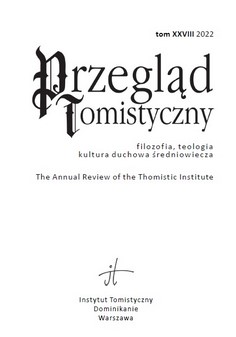WALTER BURLEY ON VOLUNTARY AND INVOLUNTARY MOTION IN MAN
WALTER BURLEY ON VOLUNTARY AND INVOLUNTARY MOTION IN MAN
Author(s): Marek GenslerSubject(s): Ancient Philosphy, Philosophy of Middle Ages, History of Psychology, 13th to 14th Centuries
Published by: Instytut Tomistyczny
Keywords: Aristotelianism; Medieval philosophy of nature; Medieval physiology; Medieval psychology;
Summary/Abstract: Walter Burley, an English philosopher active in the first half of the fourteenth century, composed a set of commentaries on Aristotle’s small treatises on psychology and physiology. One of the issues raised in three of them is the problem of voluntary and involuntary motion in humans. Drawing from several earlier commentators of Aristotle, Burley analyses the nature of motion in animals and the specificity of human motion. He tries to explain the animal motion with the help of the concept of spiritus, both in the “regular” cases and in the exceptional ones. He identifies the position of practical intellect in the account of voluntary motion in humans.
Journal: Przegląd Tomistyczny
- Issue Year: 2022
- Issue No: XXVIII
- Page Range: 193-207
- Page Count: 15
- Language: English

